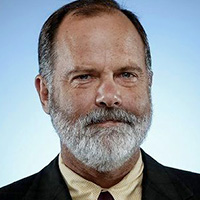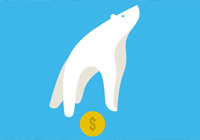THE EARTH IS ROUND; IT ORBITS THE SUN. If one sets sail for the horizon, one’s ship does not fall over the edge. Living things evolve through natural selection, a process that applies to humans as well as other species. Smoking tobacco causes cancer. The world is warming, and human production of greenhouse gases is responsible. Vaccines have thwarted the spread of some of humanity’s most ravaging diseases; they do not cause autism. Immigrants to the United States commit fewer crimes than people who were born here. Polls do not always predict outcomes, but they are useful measures of the public’s choices and ideas at any given moment.
These are facts. They were not always known, but they are now, and they are no longer in dispute by serious, thinking people. Which is not quite the same as saying that everyone agrees about them. Significant chunks of Americans doubt the existence and implications of climate change. Smaller but determined groups resist vaccines. Some people smoke cigarettes. A few may still wonder whether man has evolved.
That there are doubters testifies not to any failings of science but rather to vagaries of communication and the distortions of commerce and politics. Some science, after all, is complicated; it can be hard to understand and easy to misrepresent. And the debate is one-sided. Most scientists believe, rightly, that their work should stand on its merits, so when it is attacked, they are sometimes frozen, unsure whether to defend it or stay silent.
Most alarming is the willingness of special interests to exploit those vulnerabilities. As Bill McKibben bracingly notes in this issue, fossil fuel interests have known for decades about climate change, but they’ve lied to protect their business model. Anti-immigrant groups need only look up the data to know that immigrants are more likely to obey the law than native-born Americans, but those groups start from the position that they don’t like immigrants; they don’t want data that undermines their views. And so they lie.
Fear, unsurprisingly, plays a role, too. Vaccine skeptics, who combine odd elements of the Hollywood left and the religious right, are afraid for their children and respond to alarmist studies. Even when those studies prove to be false, the fear lingers.
But the work featured in this issue also points to another fact: Science is not the problem. The job of scientists is to answer questions, and they are doing so. The job of policymakers is to take those answers and translate them into programs that help society — that slow the rising seas, that protect children from disease, that shape our policy on immigration. It is policymakers who are failing. Not all of them, of course, and not all the time. But too many and too often.
Our current predicament is made more difficult by Washington. The president has set a vulgar and dangerous example, too often siding with the voices of idiocy, delusion, deception and conspiracy. Climate change is not a “hoax,” and he knows it. But Trump, too, will pass.
For society to make the most out of science, scientists must probe, and policymakers must act. That relationship is half-broken. It needs to be altogether fixed.
























